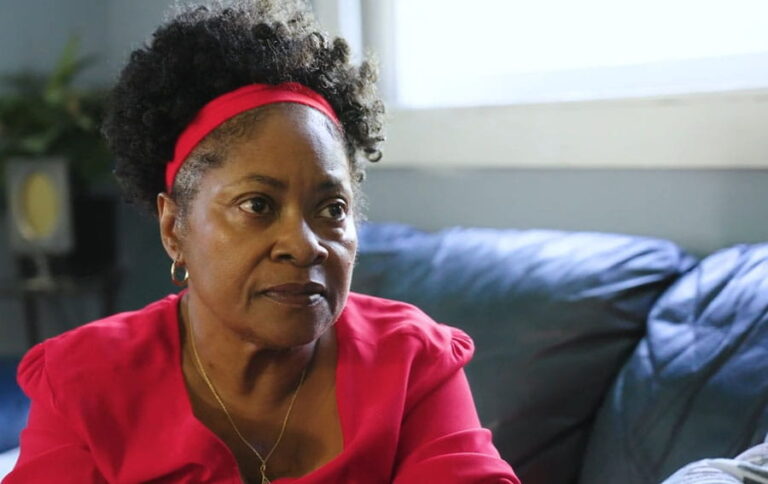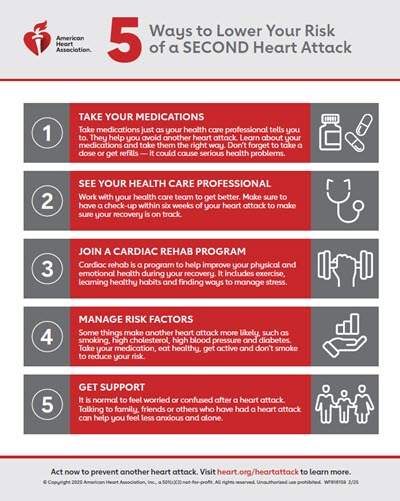Explore and accept your options
You had a heart attack. Now what?
It’s no surprise that many people feel scared, confused, and overwhelmed after a heart attack. A heart attack is a life-changing event.
After your treatment, you probably received instructions and lots of information from your healthcare team. With time to think, you may try to understand what happened. You definitely want to know what you can do to avoid heart problems in the future.
Navigating the road to recovery can be difficult. Questions, confusion, uncertainty and even fear are commonplace. Get answers to your questions and learn more about what awaits you.
5 Ways to Prevent Another Heart Attack
Make prevention your priority
After a first heart attack, most people lead productive lives. But more than a quarter of patients are readmitted to the hospital within 90 days of discharge, a critical window during which new problems, including a second heart attack, can arise. A second heart attack during this 90-day window is linked to a nearly 50% risk of death over the next five years.
To maintain your health and avoid another heart attack, follow your treatment plan and focus on a heart-healthy lifestyle.
From hospitalization to health
When Carolyn, Trip, Ed and Margarita had a heart attack, they felt scared and unprepared for what might come next. Follow their journey from the hospital to a healthier life with this video series that focuses on the experience of hospitalization and discharge, managing the risk of a second heart attack, family and friends who rallied to help them through the first 90 days and lifestyle. changes they made to improve their health.
Here are five things you can do to prevent another heart attack:
Take your medications as prescribed. Certain medications can significantly reduce your risk of another heart attack. This is why it is important that you understand your medications and take them correctly. Learn more about manage your medications.
Attend your follow-up appointments. Attending your follow-up appointments will help your healthcare team monitor your condition and recovery. You can make the most of your time with your healthcare professionals by prepare for your appointment.
Participate in cardiac rehabilitation. Cardiac rehabilitation is a medically supervised program designed to help you recover after a heart attack. You should have been referred to cardiac rehabilitation when you left the hospital. If not, talk to your primary care provider or cardiologist. Learn more about cardiac rehabilitation.
Acquire help. It’s normal to feel scared, overwhelmed, or confused after a heart attack. Getting support from loved ones or people who have also suffered a heart attack can help you cope. Connect with other heart attack survivors and their caregivers through our Support network.
Manage your risk factors. After a heart attack, it is important to manage risk factors (such as high blood pressure, high cholesterol, and diabetes) by taking medications, quitting smoking, eating healthy foods, and being active. Learn more about manage your risk factors.
Download 5 Ways to Reduce Your Risk of a Second Heart Attack (PDF)

